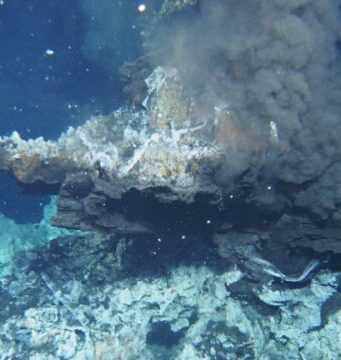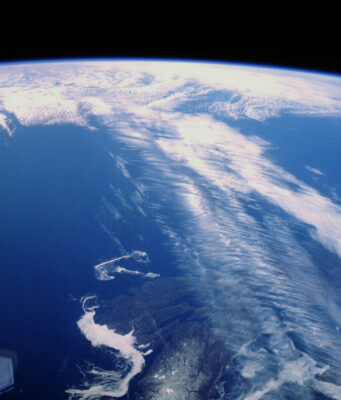New research explores how lower-latitude oceans drive complex changes in the Arctic Ocean, pushing the region into a new reality distinct from the 20th-century norm.
The University of Alaska Fairbanks and Finnish Meteorological Institute led the international effort, which included...
By 2025, atmospheric carbon dioxide (CO2) levels will very likely be higher than they were during the warmest period of the last 3.3 million years, according to new research by a team from the University of Southampton published today...
Curtin University-led research has found new evidence to suggest that the Earth's first continents were not formed by subduction in a modern-like plate tectonics environment as previously thought, and instead may have been created by an entirely different process.
Published...
Adding crushed rock dust to farmland could draw down up to two billion tons of carbon dioxide (CO2) from the air per year and help meet key global climate targets, according to a major new study led by the...
How did the chemical makeup of our planet's core shape its geologic history and habitability?
Life as we know it could not exist without Earth's magnetic field and its ability to deflect dangerous ionizing particles from the solar wind and...
New research provides the first direct evidence for the Gulf Stream blender effect, identifying a new mechanism of mixing water across the swift-moving current. The results have important implications for weather, climate and fisheries because ocean mixing plays a...
A new study by University of Alberta physicists provides an explanation for why changes to Earth's magnetic field over time are weaker over the Pacific region—a mystery scientists have been trying to solve for nearly a century.
"This is something...
If the world is to maintain a sustainable economy and fend off the worst effects of climate change, at least one industry will soon have to ramp up dramatically: the mining of metals needed to create a vast infrastructure...
Water security is becoming an urgent global challenge. Hundreds of millions of people already live in water-scarce regions, and the UN projects that by 2030 about half the world's population will be living in highly water-stressed areas. This will...
As scientists work to determine why some of the latest climate models suggest the future could be warmer than previously thought, a new study indicates the reason is likely related to challenges simulating the formation and evolution of clouds.
The...
In a new study, published in the journal Nature, an international team of scientists provide the first conclusive evidence directly linking deep Earth's water cycle and its expressions with magmatic productivity and earthquake activity.
Water (H2O) and other volatiles (e.g. CO2 and...


















